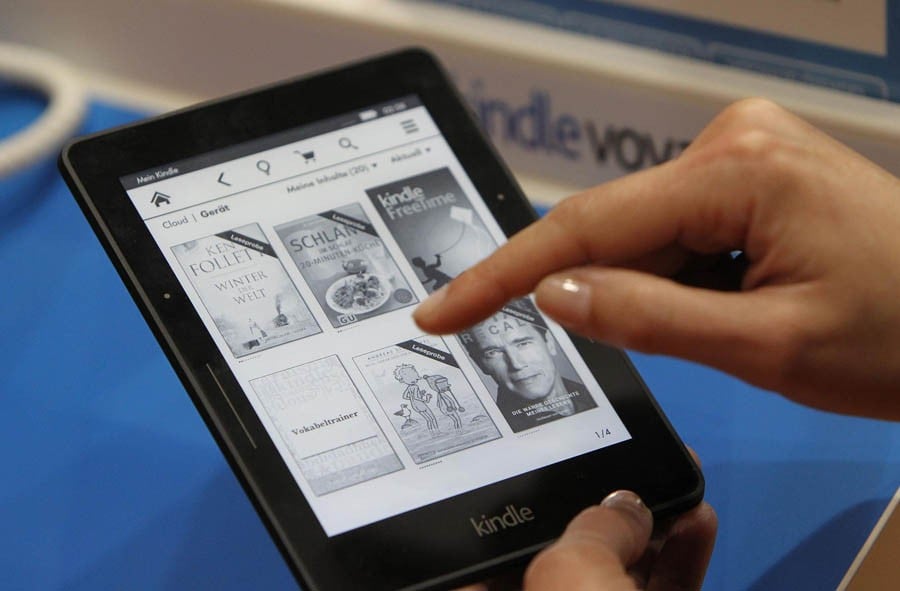

Dear All,
As the Karachi Literary Festival 2017 comes to a close today, one is moved to ask what exactly is going on with books and our relationship to them?
Publishing seems to be flourishing in India, and now Pakistan seems to be seeing a similar trend. KLF’s array of new books and authors was astonishing. But, one asks, aren’t books supposed to be on the decline in this digital age where youngsters (and oldies) have made their phones almost a physical extension of themselves? And if people are still reading but on screens, why are books still being published in hard copy?
I personally get a real thrill from a published volume -- which is difficult to get from the digital version of the same. I still experience a sense of near-exhilaration upon handling a new book. And even after finishing a book, I love the feeling of randomly riffling through the pages and glancing at passages and chapters.
But possibly I am a relic from a bygone age -- just as some people say books are too. That is because I think the actual physical presence counts greatly.
An examination of the question of whether or not reading books was now passé by David Denby in the New York Times last year included a quote by a youngster that "books smell of old people". Of course, this was not meant in the sense that books evoke a marvellous sense of history or create a link with generations past; it was meant in the sense that they smell unpleasant and are not ‘cool’.
Obviously, books are heavy and onerous to cart around, but it’s not just their physical absence I worry about, it is how their physical absence makes them less visible and hence less widely read. Apparently, there is now a huge market for digital books -- as perhaps evidenced by the move into the market of Juggernaut Books in India whose digital publications seem to sell like hot cakes. But the question is" has reading now become altogether more random?
What I mean is: is reading now the equivalent of the ‘impulse buy’? Is it being consumed without the useful structure of a core reading list?
I have had this conversation often with my offspring who have the curious view that education should not force people to do anything, and that the core reading list idea is outdated and high-handed. In vain have I tried to convince them that you need to read and be familiar with the texts that have shaped thinking over centuries in order to be able to dispute or reject them. In vain have I tried to convey to them that it’s useful to be familiar with the ‘seminal’ texts of every discipline, and to share a common body of knowledge rather than just floating through life perusing or skimming texts as they take your fancy.
Because I think that you do need a frame of reference to discuss and communicate, and you need to be able to understand the reference a work makes to other works.
When we were in school, we were given a reading list that it was recommended we get through. We were never tested on it, but the indication was these were books a school-educated person needed to have some basic familiarity with.
Young people are still reading. The last 20 years have seen children’s and young adult fiction do wonderfully well, and indeed the immense success of the Harry Potter books was followed by such socio-politically topical works as the Hunger Games and Noughts and Crosses. But for me, the problem remains context: were these young readers able to fit these works into a genre and a history of such work?
Or would that have destroyed the pleasure of the experience?
The debate is ongoing…
Best wishes,